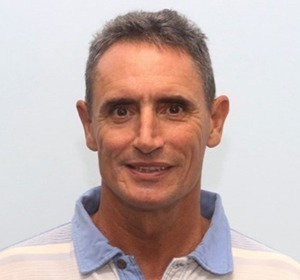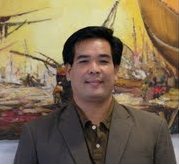
Professor Glen Bright
Prof Glen bright is the Dean of Engineering at the University of KwaZulu Natal (UKZN), Durban, South Africa. He graduated with a BSc (Mechanical Engineering), MSc (Engineering) and PhD (Engineering) degree at the Ex-University of Natal, in the area of Mechatronics, Robotics and Advanced Manufacturing Systems. He has been a Professor of Mechatronics, Robotics and Advanced Manufacturing Systems since 2002.
He has held the following leadership positions since 2002: Major Leader and Head of the Mechatronics degree program at Massey University, Auckland, New Zealand, Head of School for Mechanical Engineering at UKZN, Dean of Research in the College of Agriculture, Engineering and Science, UKZN; and now Dean of Engineering at UKZN since 2018. He holds the James Fulton Chair based in Mechanical Engineering, since 2008.
Prof Bright graduated with an MBA degree at UKZN, Durban, in 2011. He lectures courses on topics associated with Mechatronics, Robotics and Advanced Manufacturing Systems. His teaching and learning objectives are to provide quality education to students at undergraduate and post graduate level. He is the leader and main supervisor of the Mechatronics and Robotics Research Group, (MR2G), since 1995, at UKZN. Research objectives are to provide industry with ‘state of the art’ solutions for Advanced Manufacturing Systems.
Talk: Technological Advancements in Mechatronics and Machine Vision and their Applications
29 August 2025 | 09:00am | Conference Room 1
Abstract: Disruptive manufacturing technologies play a transformative role in Engineering, by revolutionizing traditional production processes. They enable revolutionary automation techniques, reduce human intervention and improve Advanced Manufacturing Systems efficiency. Advanced sensors and AI-powered solutions enhance precision in design and manufacturing. Real-time decision-making is optimized through big data processsing, optimized workflows and resource utilization. Additive manufacturing, like 3D printing, enables complex and customized designs, while reducing material waste. Robotics and machine learning applications improve quality and adaptability in dynamic environments, driving innovation and competitiveness in Engineering production sectors.

Professor Arnulfo Azcarraga
Dr. Arnulfo Azcarraga is a recently retired Professor of Computer Science at De La Salle University (DLSU) in Manila, Philippines. He is a University Fellow, and once headed the Society of University Fellows of DLSU. He had served as Vice Chancellor for Research and prior to that appointment, he held several other key administrative positions, including Associate Vice Chancellor for External Relations, Executive Vice President of De La Salle Canlubang, Dean of the College of Computer Studies, Graduate School Director, and Vice Dean.
While on research leave from DLSU from 1999 to 2002, he was a Senior Research Fellow at the School of Computing of the National University of Singapore, and was managing the very large Programme for Research into Intelligent Systems (PRIS).
Dr. Azcarraga earned a doctorate in Computer Science from INP Grenoble (France); Master’s degree in Computer Science from the Asian Institute of Technology in Thailand; and Bachelor’s degree in Applied Mathematics cum laude from the University of the Philippines at Los Baños under the INTAPS programme. He went through a university leadership programme at the University of Kassel in Germany, and also joined in Rome the Lasallian Leadership Program of the International Association of Lasalle Universities (IALU).
His research focuses on the theory and applications of self-organizing maps and neural networks, in general. He has published extensively in IEEE, Elsevier and Springer journals, and in technical conferences, notably the IEEE/INNS IJCNN and the APNNS ICONIP. He also contributed a section to the book Soft Computing for Knowledge Discovery and Data Mining, published by Springer.
Dr. Azcarraga is Senior Quality Assurance Assessor of the Asean University Network (AUN QA), and is a seasoned trainor and Chief Assessor of AUN QA. He is a member of the Mensa, and is currently on the Artificial Intelligence Board of the Department of Science and Technology (DOST/PCIEERD) in the Philippines.
Talk: What it takes to Innovate Locally, what it means to Impact Globally
28 August 2025 | 0900 | Conference Room 1
Abstract: This will be a critical take on the theme of the conference, “Innovating Locally, Impacting Globally: Advances in Mechatronics & Machine Vision”. Building on some key aspects of the evolution of Computer Vision, I will try to connect the scientific “story” of Machine Vision to those of Mechatronics and Robotics, and even to that of Natural Language Processing (NLP). I will go thru what I think are the key developments that marked the major milestones and breakthroughs of these fields, and then point out some challenges in “innovating locally”, which is taken to mean “putting technology to good, local use”. And just to encourage and foster critical discussion among young researchers in the audience, I will end the talk by taking a jab, almost making pot shots, at the second half of the theme “Impacting Globally”, if only to force them to be clear about the essence and true purpose of their scientific pursuits.
